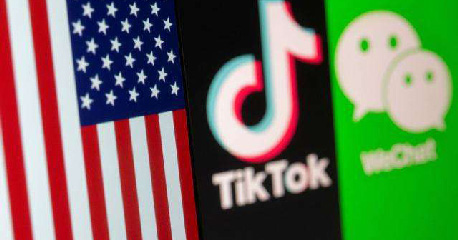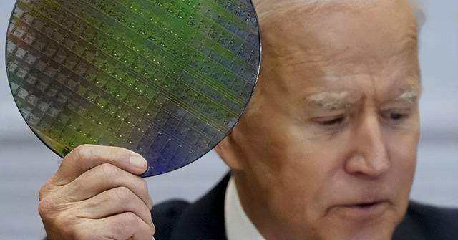
United States, Maryland, Banned, TikTok, WeChat, China, Russia, Platforms, Products Maryland has announced a ban on the use of TikTok, WeChat, and a number of other China- and Russia-based products and platforms on state executive branch platforms due to these entities poses an unacceptable cybersecurity threat to the state.
Republican Gov. Larry Hogan on Tuesday (Dec. 6) announced an emergency cybersecurity directive banning the use of those products and platforms. Those entities have the potential to be involved in cyber espionage, surveillance of government entities and improper collection of sensitive personal information, he said.
TikTok is the international version of the short video sharing platform Douyin, whose parent company is China's ByteDance. WeChat is the international version of the social media platform WeChat, whose parent company is China's Tencent.
A statement from Governor Hogan's office on the official website quoted the outgoing governor as saying: "As the cyber capital of the United States, Maryland has taken bold and decisive action to prepare for and address cybersecurity threats. To protect our systems, we are issuing this emergency directive against foreign actors and organizations seeking to weaken and divide us."
This directive applies to: TikTok, Huawei Technologies Co., Ltd., ZTE Corporation, Tencent Holdings, including but not limited to Tencent QQ, QQ Wallet and WeChat, Alibaba products including but not limited to Alipay, Russian cybersecurity company Kaspersky )
According to the directive, agencies of the State Administration must remove any such products from the State network, implement measures to prevent the installation of such products, and implement network-based restrictions to prevent the use of or access to prohibited services.
The statement from the governor’s office noted that FBI Director Christopher Wray reiterated last week that TikTok poses a national security threat, noting that “the Chinese government has demonstrated its willingness to steal Americans’ data on a scale that dwarfs all.” will". The statement also mentioned that on Monday, NBC News reported that hackers linked to the Chinese government were involved in the theft of U.S. COVID benefits, including state unemployment relief funds.
A day before Maryland's governor announced the ban, Republican Gov. Henry McMaster of South Carolina called for TikTok to be banned on state government devices.
South Dakota's Republican governor, Kristi Noem, issued an executive order on November 28 banning state employees and contractors from accessing TikTok on state devices, citing the platform's ties to China.
Earlier on the same day as Maryland's governor issued the ban, Republican lawmakers from Wisconsin sent a letter to Democratic Gov. Tony Evers, calling on him to remove TikTok from state government equipment.
Senator Ron Johnson of Wisconsin and Representatives Mike Gallagher, Tom Tiffany, Glenn Grothman ), Bryan Steil and Scott Fitzgerald said: "Wisconsinians are counting on their governor to realize the danger TikTok poses security threats and protect them from this channel of Chinese intelligence operations."
Representative Gallagher co-authored an article last week with Republican Senator Marco Rubio of Florida calling on the government to ban TikTok.
Britt Cudaback, a spokesman for Gov. Evers, told The Associated Press that the state administration takes cybersecurity threats seriously and regularly consults with the U.S. Department of Homeland Security, the U.S. Department of Homeland Security, and Consultation with FBI and counterintelligence experts.
"We will continue to follow the judgment and advice of law enforcement, cybersecurity and counterintelligence experts on this and other evolving cybersecurity matters," he said.
Vanessa Pappas, chief executive of Los Angeles-based TikTok, has said the company protects the data of all U.S. users and that Chinese government officials do not have access to it.
A potential national security deal between the Biden administration and TikTok, expected to be finalized by the end of the year, now faces more hurdles as U.S. officials raise national security concerns about the popular app. The delay adds to political headwinds for TikTok and its Chinese parent company, ByteDance, in the U.S., where the Biden administration and Republicans, the soon-to-be majority party in the House of Representatives, are now ramping up their opposition to the company.


